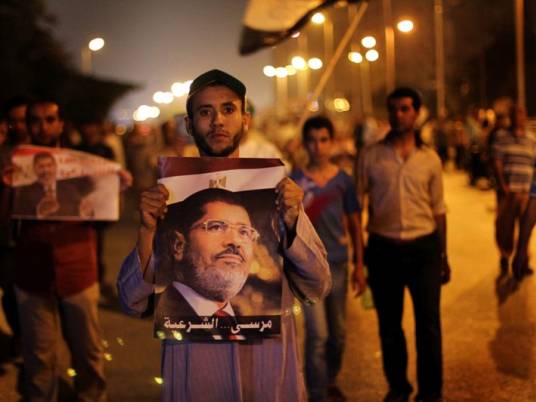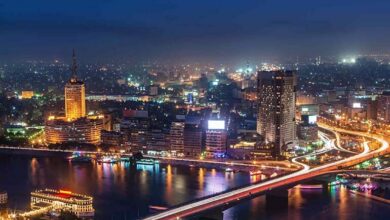
With the arrest of Muslim Brotherhood Supreme Guide Mohamed Badie on Monday, Egyptian security forces have for the third time undermined the morale of the Muslim Brotherhood following the overthrow of Mohamed Morsy from power in July.
The arrest comes after more than 50 days of protests by the Brotherhood.
Security forces dealt two destabilising blows to the Brotherhood on top of the arrest of Badie. The first, the dispersal of the pro-Morsy sit-ins in Rabaa al-Adaweya and al-Nahda squares on Wednesday. They were followed by another equally crushing blow, when the Brotherhood called for massive protests across Egypt, or its "Day of Rage." Then, 213 Brotherhood protesters were killed, according to sources from the Brotherhood. In addition, Brotherhood protesters were besieged inside al-Fateh mosque in Ramses and the group failed to mobilise its members to lift the siege which continued for more than 12 hours.
Security forces continued to abort any protests or sit-ins the National Alliance in Support of Legitimacy called for, preventing them from protesting in Mostafa Mahmoud square in Mohandiseen, which emerged as an alternative protest venue to Rabaa and Nahda. The Brotherhood also sought to stage a protest close to the Supreme Constitutional Court, but security forces again preempted their protest and also prevented them from gathering in Roxy, Heliopolis.
The Brotherhood was left with no place to stage its protests, apart from Helwan and in some Egyptian governorates. Furthermore, the numbers of protesters shrank considerably as the verbal and physical violence exercised by some of its members eroded popular support. The Brotherhood seemed to be providing cover for the violence perpetrated by jihadi groups. The losses in human lives further deterred some 20 to 30 percent of Brotherhood members from joining the protests.
Security forces have dealt consecutive blows to the group since the breakup of the Rabaa and Nahda protests, arresting lower-level leadership such as officials in charge of administrative and Freedom and Justice Party (FJP) offices, saying they are responsible for escalations against security forces and incitement to renewed protests.
The most recent of these arrests were of Mohamed Abdel Ghany, a member of the group's Shura Council and formerly in charge of the group's political committee, and Ahmed Shehata, the FJP secretary in Sharqiya. Meanwhile, security forces have failed to arrest Ahmed Fahmy, the former speaker of the Shura Council, and several other Brotherhood leaderships in Sharqiya after storming their homes.
The last of the security blows to the Brotherhood was the arrest of Badie, the strongest man in the organisation and the head of its executive authority (or Guidance Bureau), not only in Egypt but the entire world. The Egyptian leadership is defying the Brotherhood's international organisation and its branches in other countries which are using an increasingly threatening language.
Badie had been arrested earlier even though he kept a low profile when the Brotherhood used ferocious language towards the armed forces and the political leadership at the height of their protests, but was released when he promised to appease the situation. Instead, Badie mounted the platform in Rabaa and called for greater escalation and urged supporters not to abandon the square. He later vanished and was said to have left in a hearse, or with his face covered with a veil, to avoid re-arrest on charges of incitement to killing.
Badie did not attend the funeral of his son Ammar who was killed in the clashes that erupted in Ramses on Friday. Fearing arrest, Badie chose not to attend the washing and enshrouding of his son and to grieve his loss somewhere in hiding.
With Badie's arrest, the group has lost the key player in ongoing events who belongs to the generation of Sayyid Qutb, who was executed. Badie is one of the hardline icons of the organisation and one of its old guards. He was previously imprisoned with Qutb for attempting to overthrow the regime. He was put to trial and some of the leaders of the group were executed.
Security forces have to arrest the rest of the members of the Guidance Bureau, the group’s Shura Council and senior administrative officials – as well as FJP secretaries in other Egyptian governorates – to put an end to protests. The Brotherhood's bases will be left with no leadership left, leading to the dismantling of the group.




